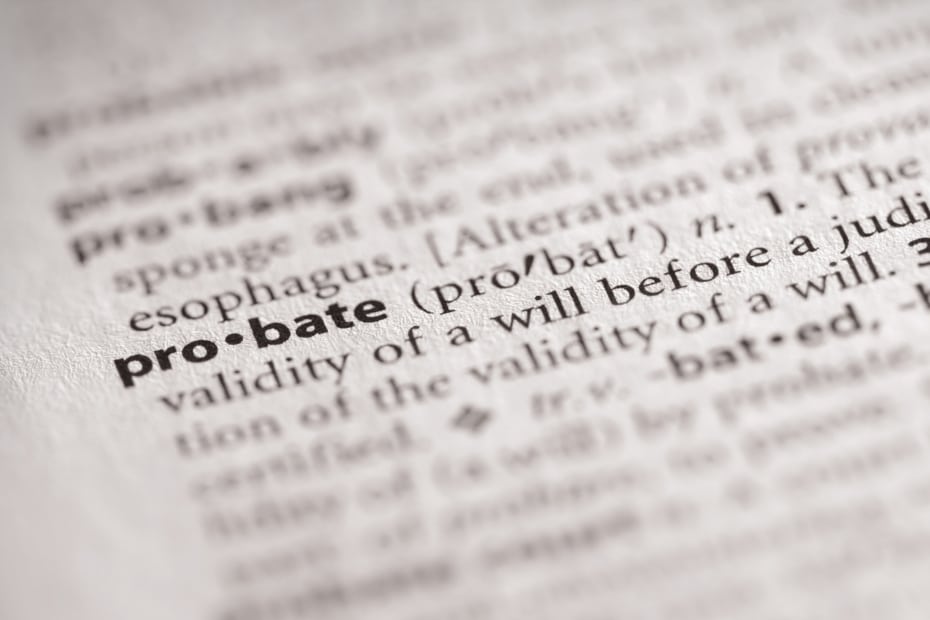Call Us At 519.672.5666
Insights & Articles
Estate Administration: Probate 101

If you have been named as the estate trustee (aka executor) of a deceased’s estate, one of the first things you will need to determine is whether the estate requires probate before the assets of the estate can be distributed.
What is Probate?
Probate is an application typically made by an estate trustee to the court, to ask the court to confirm the authority of the estate trustee and formally approve that the deceased’s will is his or her last valid will for the purpose of administering the estate. The process is formally called an Application for Certificate of Appointment of Estate Trustee.
If the deceased did not have a will at the time he or she passed away, someone else, such as a spouse, common-law partner, or adult relative of the deceased, can apply to be appointed as the estate trustee of the estate.
When is Probate Necessary?
Probate is not always required in order to administer an estate. A number of factors determine whether it is necessary to make an application. The following circumstances are examples in which it may be necessary to apply for probate:
- The deceased owned real estate that does not pass to a joint owner by right of survivorship.
- The deceased has an account with a financial institution which has requested proof of the estate trustee’s legal authority to handle the funds of the deceased.
- The deceased died without a will.
- There is a dispute about who should act as estate trustee.
- There is a dispute about the validity of the will.
What is Included in a Probate Application?
In order to probate an estate, the estate trustee will need to collect the deceased’s original will and codicils (if any) along with the death certificate. Court application forms are completed which supply the court with background information about the deceased, the person applying to be the estate trustee, and the beneficiaries of the estate.
The court application will also need to provide details of the total value of real and personal property owned by the deceased, with values determined as of the date of death. Estate Administration Tax (commonly referred to as “probate tax”) will be assessed and charged on the total value of the deceased’s estate. No probate tax is payable on the first $50,000 of the estate. Above this number, the tax is calculated at the rate of $15 for every $1,000 (or part thereof) of the value of the estate.
In certain circumstances, an estate administration bond may also need to be posted by the estate trustee. This bond is posted as assurance that the estate trustee will carry out his or her responsibilities in accordance with the will and provincial law, and is intended to satisfy any financial losses incurred by the estate due to improper acts by the estate trustee.
Finally, before the court application is filed, a copy of the application must be served on anyone who is entitled to a share of the estate.
If you are an estate trustee who requires assistance with the administration of an estate, please contact a member of our department to schedule an appointment.
This article was written by Wills, Estates and Trusts Lawyers Jennifer Butkus and Jillian Berry.

